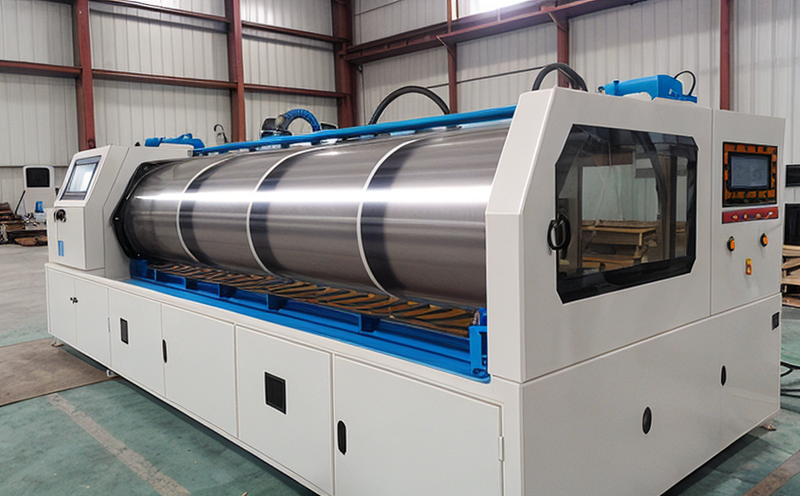AATCC 30 Resistance of coated fabrics to fungal growth
The AATCC Test Method 30 evaluates the resistance of coated fabrics to fungal growth. This test is critical in ensuring that textiles used in various sectors, such as healthcare, electronics, and food processing, maintain their integrity and hygiene over time. Mold and fungi can significantly impact the performance and lifespan of these products by compromising their protective properties.
The AATCC 30 protocol involves exposing coated fabric specimens to a fungal inoculum under controlled conditions for an extended period. The specimens are then visually inspected at regular intervals, and any visible signs of growth are recorded. This process helps determine the effectiveness of coatings in resisting fungal contamination.
Understanding the mechanics behind this test is crucial when deciding its relevance to your product development or compliance needs. For instance, if you're developing a new healthcare gown that must maintain sterility during use, ensuring it meets AATCC 30 standards can be vital for both quality and regulatory compliance. Similarly, in electronics manufacturing, where the integrity of circuit boards is paramount, this test ensures that any protective coating adheres to strict hygienic standards.
The standard specifies that specimens should be prepared according to specific dimensions and specifications outlined by AATCC. The fungal inoculum used must adhere to defined criteria to ensure consistency across tests. This includes the type of fungi employed (often Aspergillus niger or Penicillium notatum), their growth conditions, and incubation periods.
For accurate testing results, it's essential to use the appropriate equipment, including a suitable incubator with controlled environmental parameters such as temperature and humidity. Ensuring these variables are consistent replicates test results across different laboratories, which is crucial for accurate and reliable data.
The AATCC 30 protocol also mandates that samples be inspected at predetermined intervals throughout the experiment. Visual observations form the basis of determining whether fungi have taken hold on the fabric surface. This step-by-step approach allows for precise monitoring and documentation of any fungal growth, providing clear evidence of a coating's effectiveness.
Understanding these technical aspects ensures that you can effectively leverage this testing method to enhance product quality and ensure compliance with industry standards. Whether you're involved in research and development or managing production processes, familiarity with the AATCC 30 protocol enhances your ability to meet stringent hygiene and durability requirements.
Eurolab Advantages
- Accurate Testing Equipment: Our state-of-the-art laboratories are equipped with precise instruments that ensure reliable test results. This precision is vital for accurate assessment of fungal resistance in coated fabrics.
- Experienced Technicians: Our team comprises highly skilled professionals who understand the nuances of AATCC 30 testing, ensuring consistent and thorough execution.
- Comprehensive Reporting: We provide detailed reports that not only summarize test results but also offer insights into potential areas for improvement. This holistic approach helps clients make informed decisions about their product development or compliance strategies.
- Quick Turnaround Times: With efficient processes in place, we can deliver timely results, enabling you to stay ahead of your project timelines.
At Eurolab, our commitment is to provide the highest quality testing services that meet international standards. Our expertise and resources ensure that every test conducted adheres meticulously to the AATCC 30 protocol, delivering accurate and reliable results.
Why Choose This Test
- Hygiene Standards: Ensuring compliance with hygiene standards is crucial for maintaining product integrity and consumer safety. The AATCC 30 test specifically addresses the resistance of coated fabrics to fungal growth, which is a critical aspect in many industries.
- Versatility Across Industries: Whether you're involved in healthcare, electronics, or food processing, this test offers versatile applications that cater to diverse industry needs. It ensures that protective coatings on textiles remain effective over time.
- Informed Decision-Making: By conducting AATCC 30 tests, you gain valuable insights into the performance of your coated fabrics under real-world conditions. This information is invaluable for refining product designs and enhancing overall quality.
- Regulatory Compliance: Meeting regulatory requirements is essential in today's competitive market. The AATCC 30 test ensures that your products meet stringent hygiene standards, thereby facilitating smoother compliance processes.
The AATCC 30 test offers a robust framework for evaluating the resistance of coated fabrics to fungal growth. By choosing this test, you invest in ensuring product longevity and reliability while also safeguarding consumer health and safety.
International Acceptance and Recognition
- AATCC Standards: The AATCC 30 method is widely recognized and accepted by the international community. It aligns with global standards for textile testing, ensuring consistency and comparability of results across different regions.
- Industry-Wide Use: This test is not only limited to academic research but is also commonly used in industry settings. Its broad acceptance makes it a cornerstone in ensuring product quality and compliance.
The AATCC 30 method has been validated by numerous reputable organizations, including ASTM International and ISO. These bodies ensure that the protocol remains up-to-date with the latest scientific advancements and regulatory requirements. As such, choosing this test guarantees that your products meet international standards and are suitable for export markets.





